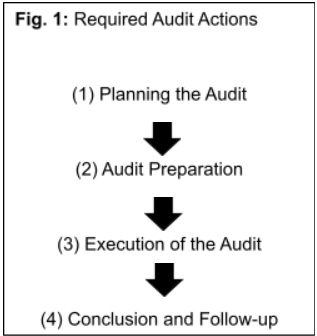Air Pollution Emissions Audit Services in India
Air pollution in India is a growing health issue and environmental problem. Some of the most polluted cities in the world, are found in India, where millions of people breathe air that often exceeds the World Health Organisation air quality guidelines for human health and social wellbeing. Of the world’s most polluted 30 cities, 22 are in India, according to research by IQ AirVisual, a Swiss-based group that gathers air-quality data globally, and Greenpeace.
It has been estimated that more than 51% of the air pollution is generated from industrial processes, with the other significant pollutant emitter being motor vehicles, particularly in urban areas. India’s poor air quality contributes to the premature deaths of many people every year, and significantly impacts the Indian economy. Unless action is taken the situation will deteriorate further. The current situation is not sustainable.
Greater control and audit of India’s industrial processes is required to ensure they adhere to environmental guidelines, regulations, standards and laws. Good environmental manage practices will ensure improved company reputation, economic savings and a cleaner ambient environment. Solving the problem of air pollution however, requires collective efforts from everyone : industry, government and the public at large. Identifying the air quality problem is the first step to managing the problem. The continual reporting of India’s poor quality, whilst highlighting the issue, does not resolve the problem. A practical remedy is an Air Quality Audit.
An Air Quality Audit (or an Air Quality Assessment), is an evaluation of an industrial pollution source, which focuses on its adherence to accepted air pollution thresholds. In addition to verifying compliance with air quality policies, it is also helpful to local and regional planning authorities if a development proposal is expected to impact on current pollution levels. An effective audit programme will help to optimise industrial operations, ensure the wellbeing of the workforce and minimise emissions to the atmosphere and the wider environment. An audit is a systematic, independent and documented process to obtain records, and other pertinent and verifiable information. Actual audit actions may include (Fig. 1):

- Planning the Audit: Good audit preparation will be decisive to the audits success. Planning includes the preparation of a plan, which will help guide the execution of auditing an industrial process. The plan will present all the industrial activities in a timeline, as well as the audit scope, detailing the processes, departments or products to be audited, and why they should be audited. During the planning stage, the audit team will identify all relevant documentation pertaining to the industrial process, such as environmental quality policies or procedures. Additionally, during the planning stage, an outline list of the people (including staff and managers) to be interviewed will be created.
- Audit Preparation: The audit preparation stage is when the auditors familiarize themselves with the company’s Quality Management System (QMS), as well as inspecting other relevant documentation. It is crucial that the audit team are well prepared for the industrial process audit, with access to a verification checklist. The checklist is an important guide for the auditor so that no details to be assessed are overlooked, as well as for recording their observations.
- Execution of the Audit: The audit starts with an opening meeting in which all the parties confirm that they agree with the auditing criteria. The audit takes place with the collection of information, which determines if the industrial process in question is meeting manufacture or regulatory standards and air quality control procedures. During the audit the audit team will interview people, ask questions and take notes on their observations. Depending on their findings, audit plans and checklists may be widened, and be subject to further evaluation. Non-conformities will be registered when aspects of the industrial process are in conflict with standardized processes and procedures, etc.
- Conclusion and Follow-up: On completion of the audit the audit team will meet to review process problem areas and determine recommendations for correcting environmental quality problems in the industrial process. The information will be included in the Final Audit Report, which will be an important input to strategic company management meetings. The report will help to evaluate the results and define how to implement improvement actions suggested by the audit team. The audit team can work with the company to implement required changes.
A good audit plan will ensure that the industrial process owner will receive value from of the audit. EKA INFRA CONSULTANTS PRIVATE LIMITED engineers are well placed to support industry in helping India’s industries in improving the effectiveness and performance of their industrial processes.